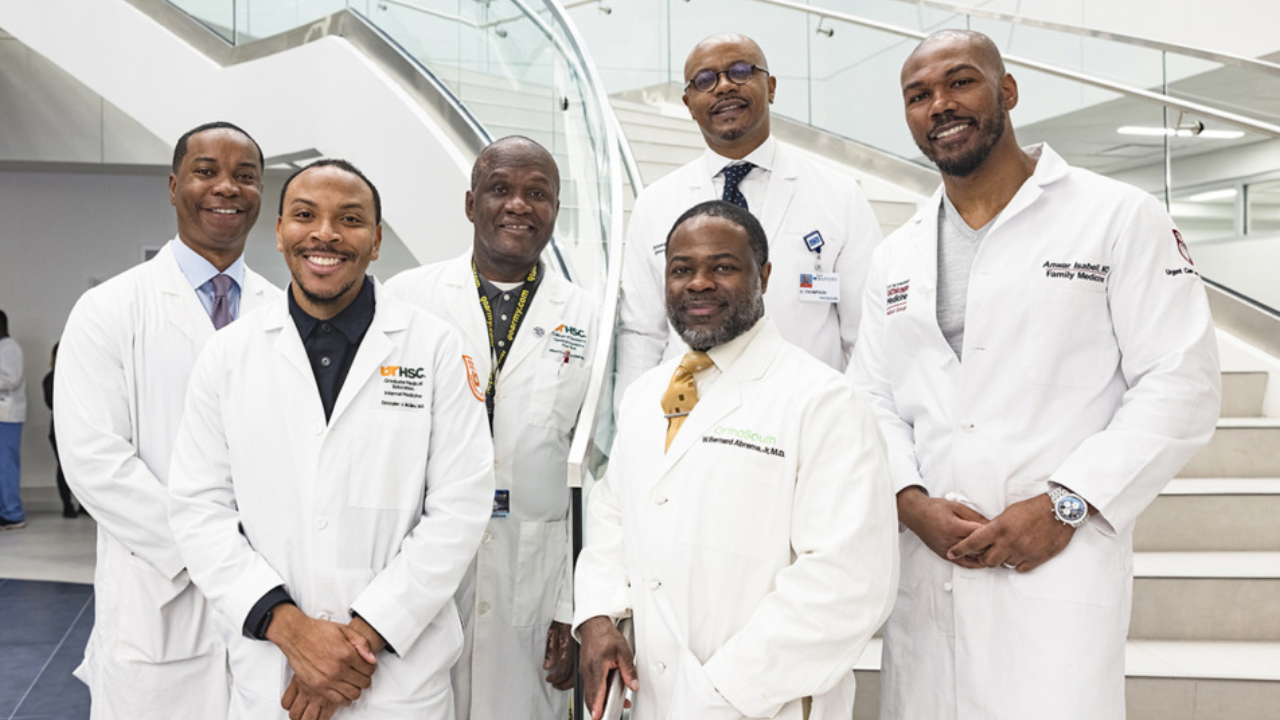Memphis is a Black city. About 60% of our population is Black.
What we don’t have is enough Black doctors: among more than 2,500 physicians in Memphis, only about 250 are Black.
About 60% of our people but only 10% of our doctors. Why is that?
In 1900, Dr. Myles Link founded the University of West Tennessee in Jackson. This was a Black university that taught medicine, dentistry and law. In 1907, Dr. Link moved the school to Memphis. In the next 16 years, it graduated 155 Black doctors.
In 1910, however, the Flexner Report, which assessed medical schools in America and Canada, concluded the U.S. did not need medical schools focused on training African Americans. As a result, the school closed in 1923.
At that time, there were 40 Black doctors practicing in Memphis. There would not be another Black student graduate from medical school in Memphis until 1964 when Alvin H. Crawford became the first Black graduate from the University of Tennessee Health Science Center.
He went on to have a distinguished career throughout three decades as pediatric orthopedic surgeon in Cincinnati, not Memphis.
It took Dr. Ed Reed who graduated from Meharry Medical College in 1955 coming to Memphis in 1962 to set up his surgical practice to be the first new Black physician to call Memphis home.

In the 1960s, capable Black students went to be trained at Meharry in Nashville and Howard University in Washington, D.C. Most of them never returned. By the mid-1960s, there were only 12 Black doctors in Memphis.
What does it take to be accepted into medical school? There are four primary criteria: your undergraduate grades, your Medical College Admission Test scores, clinical experience and your interview.
In a world where merit is supposed to determine acceptance to schools, this might seem equitable. However, 75% of medical school students come from the top two household-income groups, according to the Association of American Medical Colleges.
Applicants from the lowest income group, less than $50,000 per year, are half as likely to be accepted as those from the highest income bracket. Black students in med school also skew toward higher income brackets. This holds true regardless of race or ethnicity.
Preparing for medical school is hard. Students who want to go to medical school are groomed from an early age. They have tutors throughout their education. If they don’t do well on the MCAT, a tutor for four months to prepare to retake the test costs $5,000. If a student’s parent works at Wendy’s, where does that money come from?
And then there is the elusive issue known as “clinical experience.” This is time spent shadowing multiple physicians in the office or the hospital to understand what the job is really like.
Students from wealthy families normally have their parents call a family friend and ask a favor for the child to spend time in the office or the hospital. Who is a single mother who works at Wendy’s supposed to call for such clinical experiences?
The journey to become a doctor is arduous for anyone, but for Black students, the road is often steeper and lonelier. Systemic barriers begin early with under-resourced schools, fewer mentorship opportunities and financial obstacles.
Even those who clear these hurdles face a medical-education system that often question whether they belong.
We must confront an uncomfortable truth: The lack of Black doctors is not due to a lack of talent or drive. It’s a consequence of long-standing inequities that continue to shape who gets to wear the white coat.
A common misconception is doctors must be the smartest person in the room. In my experience, the best physicians are those who are deeply committed to learning and who care profoundly about their patients.
Yet for too long the medical pipeline has been shaped by narrow definitions of aptitude and rigid admissions processes that fail to account for the resilience and compassion required to care for diverse communities.
Read the full story on Daily Memphian.
The Rev. Dr. G. Scott Morris, M.D., is founder of Church Health. He is a regular contributor to The Daily Memphian.
The Daily Memphian is the must-read, primary daily online publication for intelligent, in-depth journalism in the Memphis community. The Daily Memphian reports on critical news, holds political, business and community leaders accountable, and engages with and entertains its readers – all while seeking truth, acting with integrity, and never fearing stories simply because of their negative or positive attributes. Led by a seasoned team of veteran journalists, The Daily Memphian is of Memphis, not just in Memphis, and seeks to tell the stories of this city.